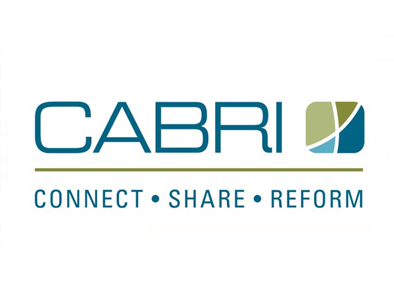Spending it well: Credible and transparent budgeting
A credible budget is more than just figures. It shows precisely and comprehensively how much public money is available and for what purpose it is allocated. Transparent budget processes ensure that the government accounts to its citizens, as it discloses whether the allocated funds were in fact used as intended and whether the objectives of government could be reached. This involves setting priorities, estimating, allocating and monitoring. When a government’s budgeting practices are based on principles of fairness, accountability, equality and transparency, the country will be able to address the fundamental needs of its people effectively and efficiently.
Our Partner: The Collaborative Africa Budget Reform Initiative
A key partner of GIZ-Good Financial Governance (GFG) in Africa Programme in the Budget Reform sector is the Collaborative Africa Budget Reform Initiative (CABRI). CABRI is a network, which among others builds capacity through peer-learning and exchange for senior officials working in Ministries of Finance and/or Planning in Public Financial Management. Since its inception, CABRI has investigated what works, what does not and under which circumstances, from the perspective of the practitioner. CABRI understands that context matters, and it acts as a catalyst for change within countries. Through its work, CABRI continues to strive to achieve its vision that, across Africa, public financial resources are managed with integrity, transparency and accountability for efficient and effective service delivery, sustainable economic growth and development.
The programme supports CABRI through technical advisory services, assisting with strategic planning processes and providing technical support. For further information on CABRI, please visit www.cabri-sbo.org.

Budget Reform Partnership programme:
With the support of GIZ, CABRI developed an interactive, user-friendly and up-to-date online portal, where budget officials can post and access a comprehensive repository of government budget information, and where CABRI can disseminate the work it produces. A feature of the Public Financial Management (PFM) Knowledge Hub is an online search facility, the Budget Enquirer, which provides access to the national budget information of 28 African countries. Budget speeches, budget proposals, appropriation acts, treasury guidelines and many more budget-related documents are available.
The GFG in Africa programme), in conjunction with other Development Partners, supported CABRI’s Africa Debt Monitor (ADM) tool that address existing information gaps by providing comprehensive information on African central government debt instruments, policies, practices and institutional arrangements. In addition to facilitating peer-learning on public debt issuance and management, the ADM aims to improve transparency and provide a broader section of the public, such as private investors, easier access to information on central government debt. Currently, the tool provides information on twenty (20) African countries and would be updated annually for data updates and the inclusion of other countries.
Africa Debt Monitor (cabri-sbo.org)

CABRI provides up-to-date and regular information and analysis on African national budgets and the GFG programme provides support over the whole budget spectrum reforms.CABRI’s ‘Budget Enquirer’ allows access to publicly available budget documentation for African countries, since 2010. The Budget Enquirer also allows one to search across years, within and across countries, across phases of the budget cycles and by type of document. By presenting information on African national budgets in one easy-to-access location, CABRI hopes to facilitate comparative analysis on both the form and content of budget information, and to encourage greater transparency across the continent.
The GIZ programme supports CABRI in implementing the Building PFM Capabilities (BPFMC) programme which is based on the problem-driven iterative adaptation (PDIA) approach, developed by the Harvard Centre for International Development to build capabilities for implementing policies and programmes. This learning-by-doing approach facilitates rapid experiential learning and leads to the emergence of new capabilities. PDIA is based on four core principles: local solutions for local problems, pushing problem-driven solutions, try, learn, iterate, adapt and scale through diffusion.
CABRI is mandated to coordinate in-country measures and facilitate peer-learning and exchange network to help African finance and budget ministries in developing and implementing Budget Reform policies that tackle IFFs. CABRI is among the Pan-African PFM networks involved in the Multi-Donor Action in Fighting Illicit Financial Flows in Africa.
Institutional Support:
ESAAAG is transitioning to the African Association of Accountants-General (AAAG) and GFG in Africa Programme is providing technical advice and support in ensuring the success of establishing the new continental association. Beyond advisory and support, the Programme has supported the Inception Phase by appointing a Consultant that assisted the Secretariat of AAAG to develop an Integrated Marketing and Communication Strategy that positions AAAG.

Publications

Success Stories
P.O. Box 28102, Sunnyside, 0028 Hatfield Gardens, Block E, Third Floor 333 Grosvenor Street, Pretoria South Africa
Useful Links
News & Updates
The latest news, articles, and resources, sent straight to your inbox every month.


